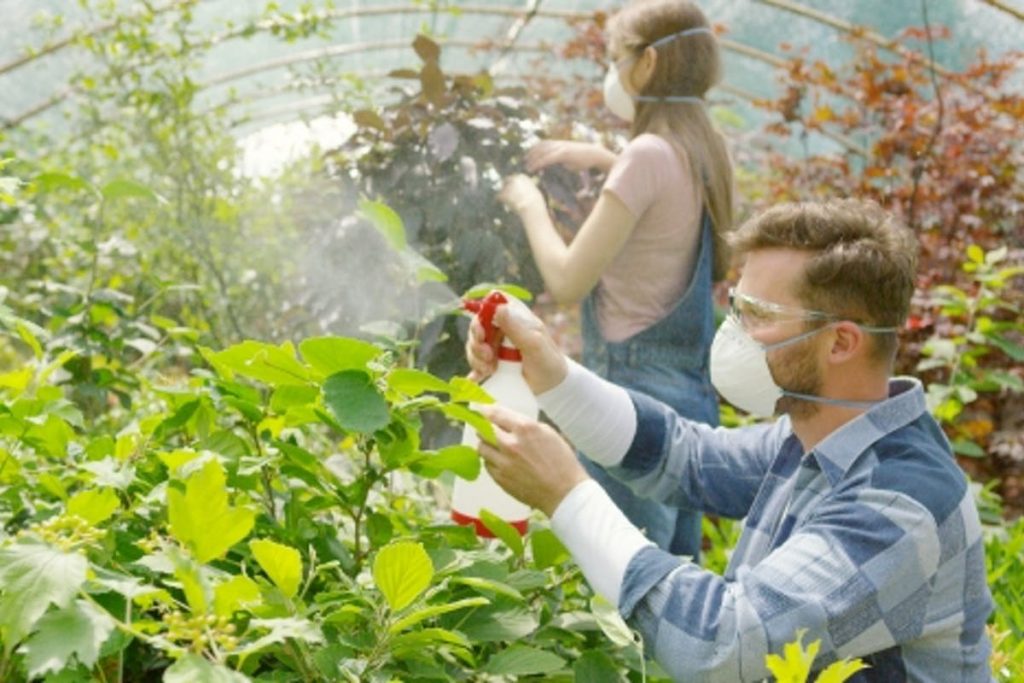Ready to schedule an appointment?
Spring Toxins
While colorful flowers are easy on the eyes, they pose potential danger to cats and dogs. Island Lake Veterinary Clinic doctors would like to make sure our clients know how to pet-proof their gardens with this information about six common spring plants and their toxicities.
Spring toxin 1: Tulips and hyacinths
 Tulips contain allergenic lactones, and hyacinths contain similar alkaloids. The toxic principle of these plants is concentrated in the bulbs, as opposed to the leaf or flower. Pet owners should prevent dogs from digging up, then eating these bulbs. When ingested, the bulbs can irritate the mouth and esophagus.
Tulips contain allergenic lactones, and hyacinths contain similar alkaloids. The toxic principle of these plants is concentrated in the bulbs, as opposed to the leaf or flower. Pet owners should prevent dogs from digging up, then eating these bulbs. When ingested, the bulbs can irritate the mouth and esophagus.
Typical signs of toxicity include profuse drooling, vomiting, and diarrhea depending. With large amounts of bulb ingestion, more severe symptoms, such as an increase in heart rate and changes in respiration, may be seen. These severe cases require immediate treatment.
There is no specific antidote for bulb ingestion. But pets’ prognosis is good with the right veterinary care, including rinsing the mouth, giving anti-vomiting medication, and, possibly, administering subcutaneous fluids.
Spring toxin 2: Daffodils
Daffodils contain lycorine, an alkaloid that triggers vomiting. Ingestion of the bulb, plant, or flower can cause severe vomiting, diarrhea, abdominal pain, and possibly even cardiac arrhythmias or respiratory depression. Similar to hyacinths, crystals found in the outer layer of the bulbs cause severe tissue irritation and secondary drooling. Daffodil ingestion may result in severe symptoms that require immediate treatment and supportive care.
Spring toxin 3: Lilies 
There are dangerous and benign lilies – and the dangerous ones can be deadly. Peace, Peruvian, and Calla lilies contain oxalate crystals that cause minor signs of illness, such as tissue irritation in the mouth, tongue, pharynx, and esophagus, which, in turn, causes minor drooling. The potentially fatal lilies are true lilies, including Tiger, Day, Asiatic, Easter, and Japanese Show lilies. These are all highly toxic to cats. Even small ingestions (such as eating the pollen or just two to three petals or leaves) can result in kidney failure.
Cats that consume any part of a lily require immediate medical care to effectively treat the poisoning. If you see a cat eating a lily, you should immediately bring the cat and the lily plant to your clinic. Decontamination (inducing vomiting and giving binders such as activated charcoal) is imperative in the early toxic stage. Additionally, aggressive intravenous fluid therapy, kidney-function monitoring tests, and supportive care can greatly improve prognoses.
Spring toxin 4: Crocuses
Some crocuses bloom in the spring, while others bloom in the fall (Colchicum autumnale). The spring plants, which are more common and are part of the Iridaceae family, can cause general gastrointestinal upset, including vomiting and diarrhea. These should not be mistaken for autumn crocus plants, part of the Liliaceae family, which contain colchicine.
The autumn crocus, also known as Meadow Saffron, is highly toxic and can cause severe vomiting, gastrointestinal bleeding, liver and kidney damage, and respiratory failure. These signs can begin immediately after ingestion or may be delayed for a number of days. Regardless of when the signs begin, the pet should be brought for medical treatment immediately after ingestion, and you should bring the plant, as well.
Spring toxin 5: Lily of the Valley
The lily of the valley (Convallaria majalis) plant contains cardiac glycosides, naturally occurring substances that, when ingested, can cause vomiting, diarrhea, a drop in heart rate, severe cardiac arrhythmias, and possibly seizures.
If your pets have eaten this plant, you should bring them in for examination. After Island Lake Veterinary Clinic doctors have evaluated your pets, they will be treated symptomatically.
Spring toxin 6: Fertilizers
While fertilizers aren’t plants, people growing spring flowers often keep fertilizers nearby. Ingesting most fertilizers only causes minor gastrointestinal irritation. But some fertilizers can be fatal to pets that eat them if the pets aren’t treated.
It’s best to keep all lawn products in labeled, tightly sealed containers that are out of pets’ reach. This is especially true for these more dangerous fertilizers:
Blood meal. This is dried, ground, and flash-frozen blood that contains 12 percent nitrogen. If eaten, it can cause vomiting, diarrhea, and, most importantly, severe inflammation of the pancreas. Some types of blood meal are also fortified with iron, which, when eaten by pets, could result in iron toxicity.
Bone meal. This is made up of defatted, dried, and flash-frozen animal bones that are ground to a powder. The “bone” is very palatable to dogs, and they should be prevented from digging in and ingesting the soil where bone meal has been applied. If consumed in high amounts, bone meal can form a large, cement-like, bowling ball-size mass in a dog’s stomach, causing an obstruction in the gastrointestinal tract that may require surgery.
Rose and plant fertilizers. Some of these fertilizers contain disulfoton or other types of organophosphates. As little as one teaspoon of 1 percent disulfoton can kill a 55-pound dog. Organophosphates, while less commonly used, can cause severe symptoms, such as salivation, lacrimation, urination, defecation, seizures, difficulty breathing, and hyperthermia. Ingestion can even be fatal to some pets.
Pesticides and insecticides. Most of these are not usually a huge concern for pets unless a cat’s or dog’s symptoms persist. Some pesticides and insecticides, though, may contain a dangerous organophosphate. Therefore, it’s best for pet owners to play it safe with all these products.
Iron. Commonly added to fertilizers, elemental iron can cause iron toxicity when ingested by by pets. This is different from “total” iron ingestion, and can be hard to differentiate. Large ingestions can result in vomiting, bloody diarrhea, and potential cardiac and liver effects.
As always, if you have any questions, please do not hesitate to contact us at Island Lake Veterinary Clinic anytime!
847-526-5363





